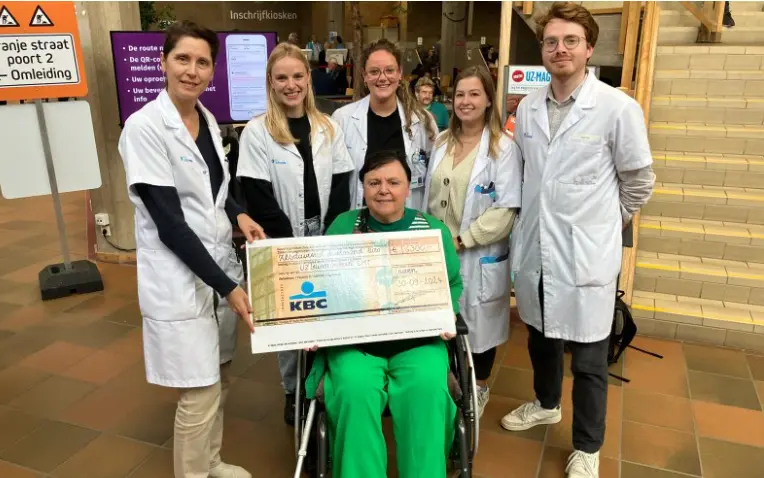Belgian Jigsaw Puzzle Championship 2025
SpeedPuzzling Belgium is happy to invite you to the first Belgian Jigsaw Puzzle Championship!
Are you a highly competitive speedpuzzler, or just a puzzle lover looking for a fun experience? Do not miss out on this great event: join us on the 1st of March 2025 for the first Belgian National Championships organized in collaboration with the World Jigsaw Puzzle Federation!
Competition format:
- Individual round: 2h to complete a 500-piece puzzle
- Pairs round: 1h30 to complete a 500-piece puzzle
- Teams round: 3h to complete a 1000-piece puzzle
Who will be the fastest puzzler in each of these rounds?
Registrations:
for people from Belgium* (Belgian nationality or residency):
- December 1st 2024 at 10h CET
*Are eligible to compete as Belgians all pairs or teams consisting of at least 50% of Belgian nationals/residents
for everyone else:
- January 1st 2025
Places are limited! Our current estimates are that we can host up to 120 individuals and pairs, and 60 teams. For this reason, people from Belgium get priority in the registration process.
All puzzles are provided by Ravensburger, our proud partner for this event!
We aim to contribute to meaningful causes, and a share of our profits will be donated to the project Stand up against Muscle and Nerve Diseases! to support research for Duchenne disease.
With each person registering in a category, a contribution of 5€ will be made to this significant cause.

Stand up against Muscle and Nerve Diseases!
is a Funds and Philanthropic project of the KU Leuven
What is Duchenne muscular dystrophy (DMD)?
DMD is a genetic disorder characterized by progressive muscle degeneration and weakness.
Symptom onset is in early childhood, usually between ages 2 and 3. The disease primarily affects boys, but in rare cases it can affect girls. In Europe and North America, the prevalence of DMD is approximately 6 per 100,000 individuals.
Until relatively recently, boys with DMD usually did not survive much beyond their teen years. Thanks to advances in cardiac and respiratory care, life expectancy is increasing and many young adults with DMD attend college, have careers, get married, and have children. Survival into the early 30s is becoming more common than before.
Scientists are exploring a variety of promising approaches in the field of DMD. Our aim is to support these efforts in hopes of enhancing the lifespan and quality of life for those affected by this condition.
Source: https://www.mda.org/disease/duchenne-muscular-dystrophy

